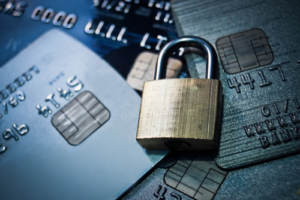Avoid Identity Theft During Your Honeymoon Travels
 Your honeymoon should be an incredible experience. After all, you and your partner will share new journeys, discoveries, and adventures. Yet during your travels, there’s always the looming risk of identity theft. According to a June 2017 CNBC article, 33 percent of Americans victimized by identity fraud were targeted while on vacation. Fortunately, some wise practices and preparation can keep your money and personal data safe while the two of you venture away from home.
Your honeymoon should be an incredible experience. After all, you and your partner will share new journeys, discoveries, and adventures. Yet during your travels, there’s always the looming risk of identity theft. According to a June 2017 CNBC article, 33 percent of Americans victimized by identity fraud were targeted while on vacation. Fortunately, some wise practices and preparation can keep your money and personal data safe while the two of you venture away from home.
Understanding Your Risks
With widespread reliance on mobile devices and digital tools, more opportunities exist for determined thieves to steal your personal information. Experian executive Michael Bruemmer explains that our use of these technologies leaves a digital footprint wherever we go. Many individuals also store their data online or in their devices and don’t often give much thought to accessing this information while on public Wi-Fi networks.
Meanwhile, other habits can put you in danger. Carrying a stuffed wallet makes you a target, as a potential thief can snag a goldmine of information. That’s also true for your passport, Social Security card, and other sensitive documents. Even excessive information on your luggage tags or an overflowing home mailbox may increase your risk.
Smart Tips To Keep Your Information Safe
Thankfully, removing those same vulnerabilities can reduce your chances of becoming a victim. Several experts, including NerdWallet’s Margarette Burnette, AARP consumer advocate Sid Kirchheimer, family travel expert Suzanne Rowan Kelleher, and Consumer Reports’ Mandy Walker, offer a whole host of recommendations to consider adopting during your own wanderings:
- Avoid public Wi-Fi. As How-To Geek’s Chris Hoffman points out, public wireless internet networks lack encryption safeguards and don’t require passwords for access. That makes them data sieves and prime environments in which hackers can strike. Some are even purposefully designed as honeypots, luring unsuspecting users with free access while launching man-in-the-middle attacks that spoof legitimate service providers to harvest data. If you must connect to a public Wi-Fi network, be sure to use a VPN provider.
- Limit banking activity to branch locations. Scammers can compromise automated teller machines by using hidden pinhole cameras or skimmers. The Federal Trade Commission’s Colleen Tressler describes them as illegal devices that attach to credit card readers. Thieves can also lift your card and PIN by looking over your shoulder as you make transactions.
- Leave sensitive personal identity documents at home. If you must bring them with you, place them in your hotel safe.
- Clean out your wallet. Bring only essentials such as a couple of credit cards, insurance ID cards, and your driver’s license.
- Halt your home mail delivery. You won’t tip thieves off to your absence or risk vital documents becoming compromised.
- Watch out for hotel front desk scams. Interlopers pose as front desk clerks, who call your room claiming that they must verify your credit card number. Don’t give out any information and call the front desk on your own.
- Monitor your credit reports and statements. You’ll keep an eye out for unauthorized charges and new accounts you didn’t open.
- Don’t reveal your travel plans on social media. Thieves monitoring your accounts will know when to target your residence or even where to look for you during your travels.
Good Habits Reduce Your Risk
You needn’t result to paranoia or hypervigilance to stay safe while on your honeymoon. Nevertheless, it pays to take some wise precautions before you hit the road and while you’re enjoying those first weeks as a married couple. Using technology wisely, reducing how much personal information you carry, steering clear of broadcasting your absence, and keeping your eyes peeled for typical scams can help you prevent becoming a victim of travel identity theft.














